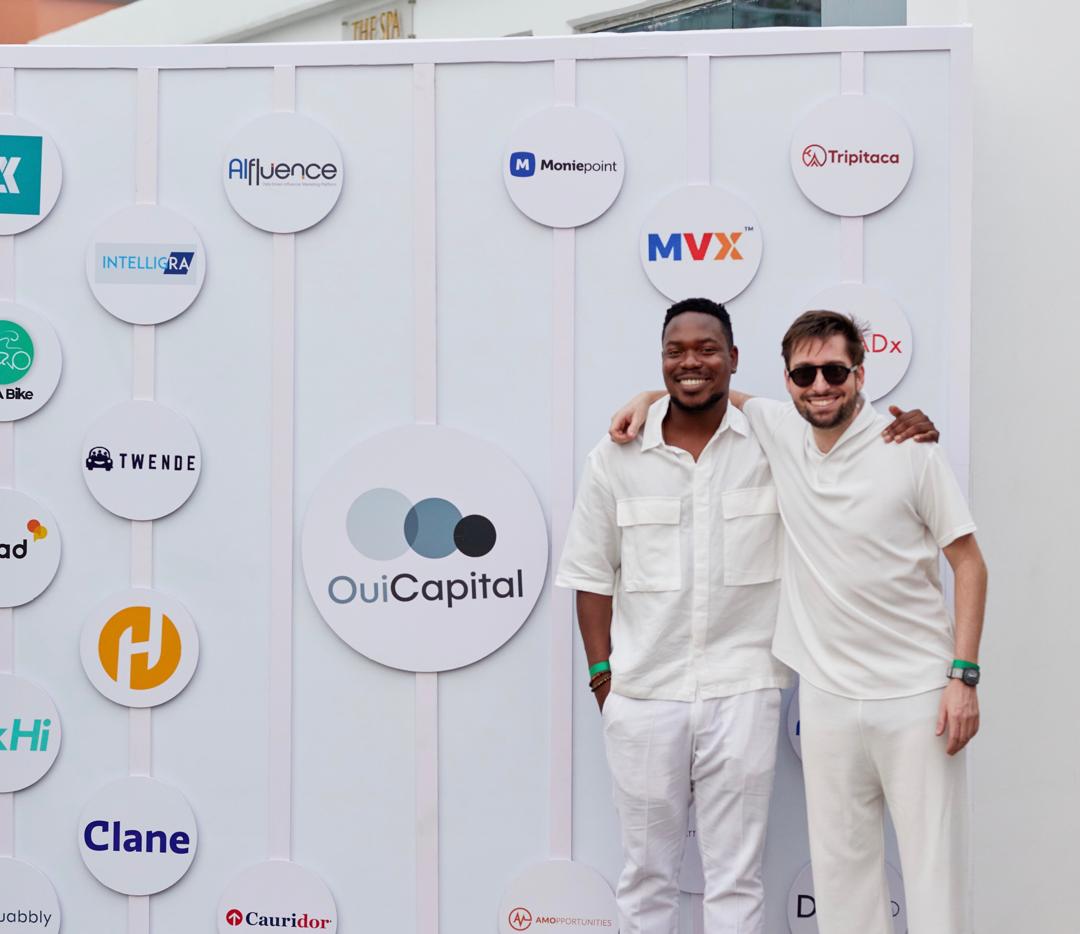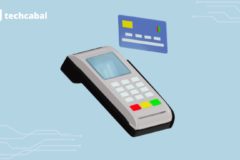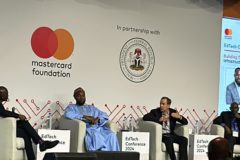Launched in 2019, Oui Capital, an early-stage venture capital fund’s motto, is to be the first yes that founders hear. The fund has backed 21 African startups at the pre-seed and seed stages, some of its portfolio companies being Duplo, Moniepoint, Akiba Digital, Herconomy and PharmacyMart.
These startups have gone on to amass over $1 billion in market value. The sector-agnostic fund has a focus on fintech, software-as-a-service, digital commerce, and healthtech startups.
Following the deployment of its $10 million fund within three years, Oui Capital raised its second $30 million fund. With a focus on early-stage startups, the fund says it helps its portfolio companies with fundraising, go-to-market support and acquiring talent.
In a YouTube video, Tosin Eniolorunda, the CEO of Moniepoint, shared that the fund helped with seeking product-market fit, traction and introductions to potential investors. “They have also been helpful in hiring, especially with some of our key hires,” he added.
Oui Capital, which funds approximately 2% of the companies that apply to it, invests between $250,000 and $500,000 and looks to own between 5% and 10% of its portfolio companies.
TechCabal spoke with Olu Oyinsan, the fund’s managing partner, and Oke Ekpagha, a senior analyst, as they shared the fund’s investment thesis and some of its biggest learnings.
Oui Capital has been investing in early-stage startups since 2019. Based on your experience, what would you say are the biggest challenges that these startups face?
Oyinsan: There are two most important challenges: the first is finding product market fit (PMF). There are a lot of theoretical definitions of PMF, but it’s like trying to run a race and getting on the track that’s going to take you to what the product should do for customers, the type of customers that actually should be using the product, and if they’re paying for it. PMF is everything you need to put in place to start growing.
The other one, which is very common, is getting the money you need to build the company. Money is scarce everywhere in the world, and for early-stage companies that don’t have traction, it’s very difficult to raise money. Founders have to lean on their other skills to serve as a proxy for the attractiveness of that company.
Does Oui Capital accept startups that do not have product market fit?
Oyinsan: The short answer is yes. A majority of the companies we have backed did not have product market fit, and that’s why we are early-stage investors. We have invested in a company with zero revenue and very little customer traction. If you look at our portfolio, what the [companies in it] do today is not what we invested in them for. What made Moniepoint, Maad, Duplo and Akiba Digital successful wasn’t what they were doing when we invested.
As early-stage investors, it’s our job and responsibility to invest in places where we can be helpful. It’s like having a co-founder who does not stay in your office because if we own the company together, we have to do everything we can to make sure that this company is successful. It’s what also generates financial returns. You’re more likely to make better financial returns if you invest in a company that doesn’t look successful yet than in one that has it all figured out. Eighty percent of the companies we invest in don’t have PMF.
What’s the evaluation procedure like for your portfolio companies? How do you assess which companies you back?
Ekpagha: You don’t get what you’d expect to see, you get what the market has in store. Off the bat, there are certain things I’m looking out for. Firstly, how strong is the founder or founding team? Do they have domain expertise that can directly translate into the new venture that they’re trying to build?
I also look at the business model: is it a scalable business model? Is it fast-growing in terms of businesses that have been in that space? How big is the market and how fast is it growing? Of course, the companies that we tend to invest in are doing something new and are going to be market leaders, but they could be growing quickly in terms of traction and not be able to grow beyond what the market is going to allow.
I also look for any traction that I can use to benchmark the rest of their success against. Typically, the startups we back don’t have major traction for their users or revenue, but we need to approximate and have an idea of how fast they’re growing already and what that could look like in the future.
What type of founder does Oui Capital back?
Oyinsan: We don’t care where you went to school, what you look like, or what nationality you are. That doesn’t build great companies. Entrepreneurial ingenuity is what builds great companies. I don’t care if you went to Stanford or the Federal University of Technology, Akure.
As you can tell, some of the bigger companies, especially in Nigeria, don’t match the pattern [of studying in Ivy League schools], but the ones who match the pattern are often the ones you are writing about that defraud investors!
We care about the problem you’re solving, and if you look like you have the grit, guts and expertise to go after it, we will back you.
Also, some things, like the market and product, don’t depend on the founders. I was talking to a brilliant founder this morning and I told him that he’s probably pursuing the wrong thing. He’s trying to build another payment company and I told him to take a step back and figure out something else because he probably will not be able to get money from us.
Does Oui Capital participate in follow-on investments?
Oyinsan: Yes, we do. In our old fund, we had a ratio of about 20% of the fund for follow-on investments. The new fund has a smaller allocation because we noticed that our first cheques have been more successful than our follow-on cheques.
It’s common knowledge in venture capital that follow-on cheques protect your position, but there are some follow-on investments that we made in our first fund, even though the fund was hugely successful, that we might not have done, following introspection.
There are many reasons VCs follow on besides financial benefits; sometimes VCs follow on an investment for optics and to catalyse the new round. We could invest in a company in the pre-seed round and it’s doing very well and now they’re raising a new round. New investors want to talk to you about the company, and their next question always is, “Are you investing in the new round if you believe in the company as much as you say you do?” So, sometimes, it’s not even a financial decision. It’s a show of good faith and support for the founders.
Sometimes investors follow on to ease the funding stress and bridge the gap because the company is in a place where they don’t want to spend a lot of time fundraising. Remember, if a company fails or runs out of money, as an investor, you lose your original investment.
Sometimes investors follow on because they didn’t get the desired percentage or as an anti-dilution tactic.
What are the ways Oui Capital supports its founders and startups besides funding?
Oyinsan: What usually happens is that we reach out to founders to feel the pulse and ask what keeps them up at night and see how we can solve that. For example, I’m talking to the founder of one of our portfolio companies and he’s very straightforward. He says that he is looking to acquire one or two companies making at least a million dollars in revenue in Ivory Coast and South Africa. Someone on our team has to find the best companies that are making a million dollars a year because that’s what we have to do. We are one of the highest shareholders and we are going to do that at no extra cost.
We also help portfolio companies look for board members or senior staff, we turn out our Rolodex and look for founders whose companies failed or people we have worked with for help.
If our portfolio companies want to raise a new round, we can also help. For example, with Moniepoint, I took Tosin with me to Rwanda for a conference because other investors were going to be there. The rest is history. If you care about the company, you do everything you need to do to make sure the company succeeds.
Oui Capital has been backing startups for five years now, starting from the time when there was a bubble to the post-bubble reality. What’s your biggest lesson?
Oyinsan: Coming from the bubble, first of all, we were never the type to FOMO into deals. Look at our portfolio. We never participated in deals where the hype around the deal was greater than the fundamentals of the company. What you call a bubble, I don’t see it as that. But I understand that there was a time when there was valuation inflation and a lot of cash.
Our biggest lesson is that you have to stay true to your thesis. It pays you over cycles. For example, we don’t have a single portfolio company that was caught in this bubble, and we have over 20 portfolio companies. It’s about just staying true to your thesis. You have to stick to your investment strategy and you just have to stay there. Don’t let the market move you left or right, because if we had invested based on the climate, we would probably not be around by now.
What problem did you want to address with Oui Capital?
Oyinsan: We said we’re going to democratise access to venture capital. Five years ago, some founders could not get in front of investors. I remember when we introduced Moniepoint to a firm, the first thing they asked was what school the founder went to. What does that have to do with anything? These people were one of the most entrepreneurial teams that you could find at the time.
Our thesis was to break away from this thinking. I felt I could not do that in any other arrangement. We stick to real entrepreneurs and we have a very strict valuation strategy. We don’t need a large number of companies. We just think it’s not a strategy for Africa; we are more concentrated than most early-stage firms. In our new fund, we’re only going to back 15 portfolio companies. Our thesis is to have a significant portion of equity and significantly support these companies.
Are you still very hands-on with the companies in your first fund following your new fund?
Oyinsan: Investing success is not really about investing, it is about returns. You have to build successful companies and you have to take money out. Today, we only take money out of our first fund because these are the companies that have developed enough. You have to keep an eye there because that’s where your interest is going to come from.
Besides, there’s a magic word called monthly updates. We don’t look at it as fund 1 or 2 because once you’ve made that investment, they are a portfolio company so you support them as a whole.
It seems that we are now in an era of market correction. How are you thinking about future investments?
Oyinsan: We never change. What has changed is that easy money has left so it has enhanced opportunities for hard-working money or money that knows what it is doing. That has presented us with an opportunity to pick up Series A-type companies for seed round prices.
We are seeing fewer companies with no PMF trying to raise a $7-$10 million pre-seed round. There was a company on the phone with us last week that was trying to do that; I had to laugh.
We’re now able to spend more time getting to know founders, performing due diligence and sticking to our guns on pricing. I think that’s the only thing that changed. The reason why I said there was no bubble is because the few investors who have stuck to their fundamentals did not suffer the damage of a bubble. It’s the investors who are not versed in doing VC or doing Africa who lost money.
How are you thinking about exits?
Oyinsan: There are different ways, but for early-stage funds, the most attractive one is secondaries when portfolio companies raise Series A–C. It’s a very significant opportunity because it usually takes startups 10 years to get to the IPO stage, and the average age of a fund is probably 7–10 years.
Sometimes there might be a need to pass on the baton to other investors who are in the first year or so of their fund. For example, Reddit, an 18-year-old company just looking to IPO—it probably wouldn’t make sense for an investor from their pre-seed round to still hold shares in the company; their limited partners would probably sue them.





















